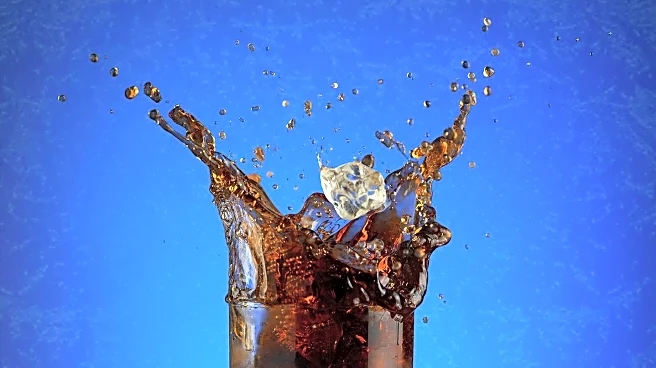What's Happening?
A recent study has found a potential link between soft drink consumption and the diagnosis of major depressive disorder (MDD), particularly in women. The study, conducted in Germany, suggests that high-sugar soft drinks may affect mental health by altering the gut microbiota, specifically increasing the abundance of the bacterium Eggerthella. The research involved 405 patients with MDD and 527 healthy individuals, revealing that increased soft drink intake was associated with higher odds of depression, especially among women.
Why It's Important?
This study highlights the potential mental health risks associated with high-sugar soft drink consumption, particularly for women. It underscores the importance of dietary choices in mental health and suggests that reducing soft drink intake could be a preventive strategy against depression. The findings may influence public health policies and dietary guidelines, encouraging a reduction in the consumption of sugary beverages. Additionally, the study adds to the growing body of evidence linking diet and gut health to mental well-being.
What's Next?
Further research is needed to establish a causal relationship between soft drink consumption and depression. The study's findings may prompt health organizations to consider educational campaigns and policy measures aimed at reducing soft drink consumption. Researchers may also explore the role of the gut microbiome in mental health more deeply, potentially leading to new interventions or treatments for depression.









